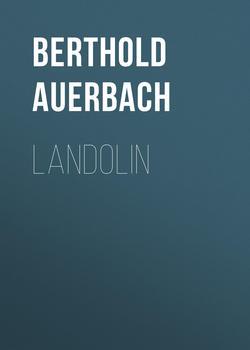Читать книгу Landolin - Auerbach Berthold - Страница 6
CHAPTER VI
Оглавление"Mother!" said Thoma, during the drive, "when father was young he must have been the handsomest man in the country."
"He was, indeed, but wild and unruly, very wild; you will have a more gentle husband. It will be just the opposite with you to what it was with us."
Thoma looked up wonderingly; it was unusual for her mother either to think or speak so much; and her astonishment increased when her mother added:
"If your father had been a soldier like Anton, he too would have learned to give way to others, and not always think himself the only person in the world. Heaven forgive me, I was not going to speak of your father at all, I only meant to tell you that you must now learn to give up to others; with marriage willfulness must end."
The deference with which Thoma had listened at first, disappeared now that her mother concluded with advice and censure. She moved her lips impatiently, but said nothing.
From the valley could be heard the din of the fair; the drums and trumpets in the show booths, the lowing of the cows and oxen, and the whinnying of the horses in the broad meadow by the river side.
At the foot of the mountain, where the signpost is, Thoma beckoned to her a beggar, who sat by the roadside, holding out his handless arm, and gave him a bright, new mark.
"That pleases me," said the mother, as they drove on.
Thoma answered with a voice clear as the morning:
"Yes, mother, on this, my day of happiness, I cannot pass the first beggar I meet without giving him something; and see," she cried, looking back, "see, he is making signs to us; he has just found out how much he received, and is showing it to the others. If I could only make the whole world happy, as happy as I am! O mother, it must be terrible! There sits a poor man appealing with such pitiful glances; men pass by, one gives nothing, the others give nothing, it is too much trouble to put their hands into their pockets and open their purses, and the poor man begs with empty mouth."
The mother nodded with a happy face, and wanted to say: "You do not take after your father in everything, in some things you are like me," but she suppressed the words. She was still vexed for having so far forgotten herself as to say anything against her husband.
"Good morning, Thoma! Good morning, mother!" suddenly sounded in greeting the clear voice of Anton; he held out his hand and continued:
"Come, jump out and walk with me."
"No, you ride with us."
"I'll walk beside you," replied Anton, and rested his hand upon the railing of the wagon, as he walked along.
The mother made excuses for having kept him waiting, and said that the farmer was following on foot.
